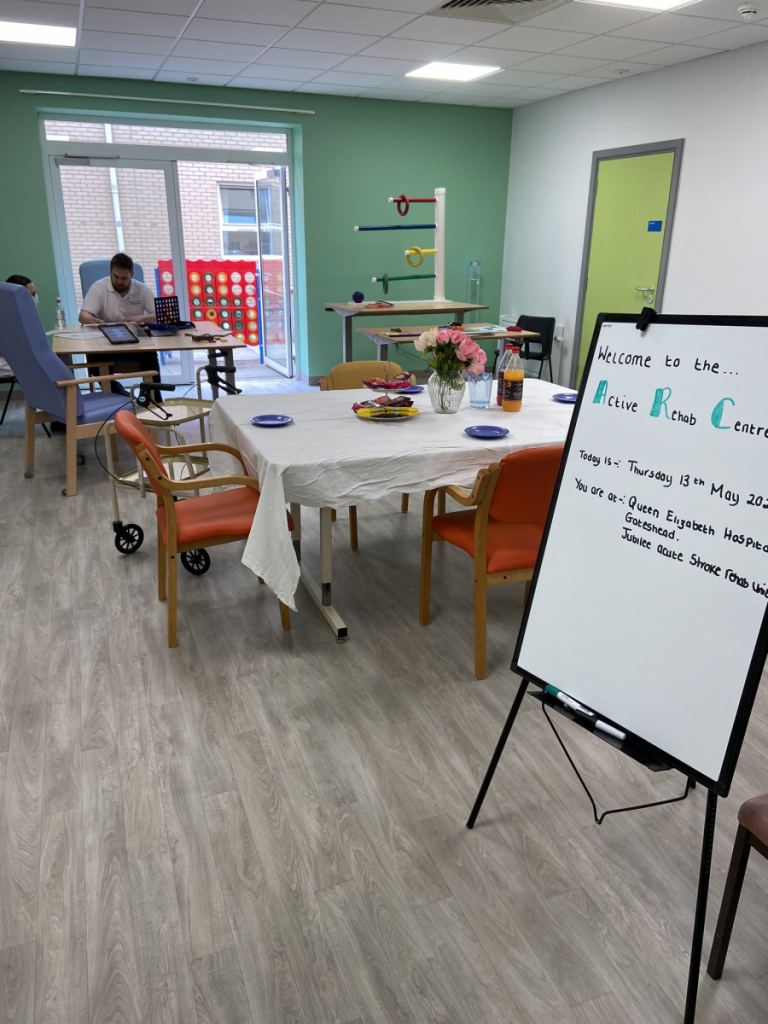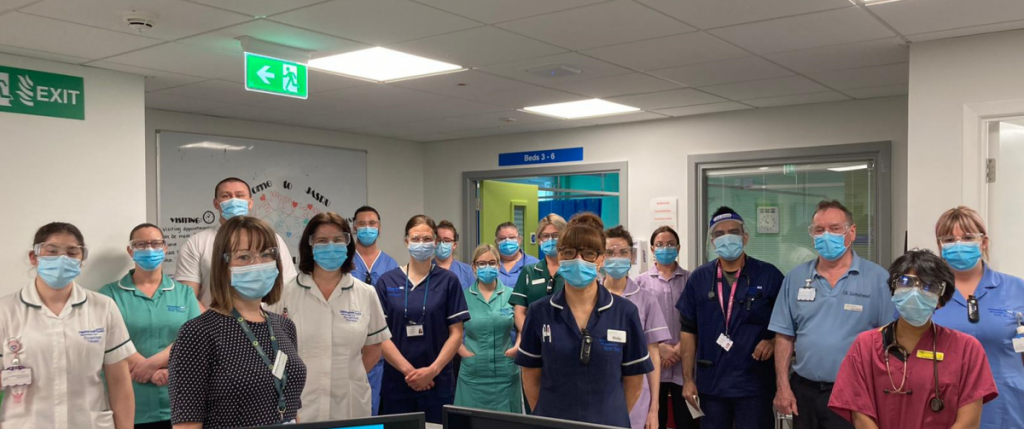The cutting-edge Jubilee Acute Stroke Rehabilitation Unit at the Queen Elizabeth Hospital in Gateshead has been specifically designed for the types of patients the hospital sees, and will provide active rehabilitation for people who have had a stroke.

Active rehabilitation means encouraging patients to engage in activities and exercises designed to promote recovery and independence, for example daily self-care tasks, walking, making drinks and breakfast, social activities, and communication and cognitive tasks – all of which are known to enhance the odds of recovery after stroke.
Dr Louise Southern, consultant physician and clinical lead for stroke medicine, says: “In designing the unit, we’ve considered the particular needs that apply to the patients we see. They are often the most independent prior to their illness, but amongst the most disabled following their stroke, and may require prolonged inpatient rehabilitation.
“The Jubilee Acute Stroke Rehabilitation Unit is a modern stroke unit that provides high quality, evidence-based care and, above all, hope to stroke survivors and their families, that they can meet their full potential for recovery.”
Dr Ruth Da Silva, occupational therapist in the stroke unit, adds: “Current research shows that many hospital inpatients who are recovering from a stroke can often be inactive for large parts of their day. This puts their recovery at risk, while also increasing the risk of other conditions such as depression, anxiety, and frailty.
“Our new unit will ensure that these risks are minimised. Patients will benefit from active rehabilitation and stroke care, which will mean they are more likely to survive the stroke, more likely to return to living at home and more likely to be independent in their day-to-day activities.”
Speaking about the staff on the unit, patient Tracy Dunn said: “They’re amazing, they can’t help you enough. They offer to do things or they’ll push you to do things yourself, like making cups of tea. If you can’t then they’ll come over and help but they like you to try which helps get your independence back. I couldn’t fault them, the staff are amazing.”
The new 20-bed unit features specially-designed facilities, which will help increase patient mobility and encourage them to get involved in activities. These include:
- a communal activity rehab centre to be used for therapy activity, eating and drinking in a supported environment, promoting patient independence and confidence, and encouraging social interaction with other patients.
- a garden therapy area, therapy kitchen and assessment rooms.
- Patients will receive therapy to complete daily living tasks independently, such as eating, bathing, dressing, grooming and going to the toilet.
